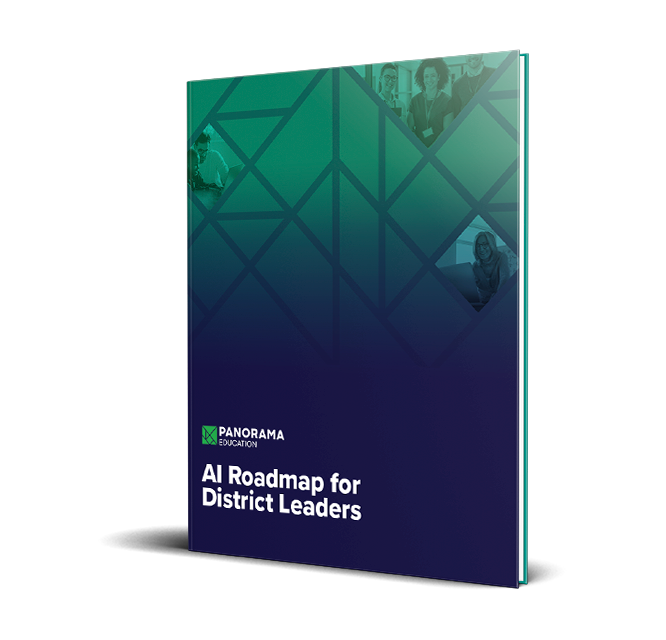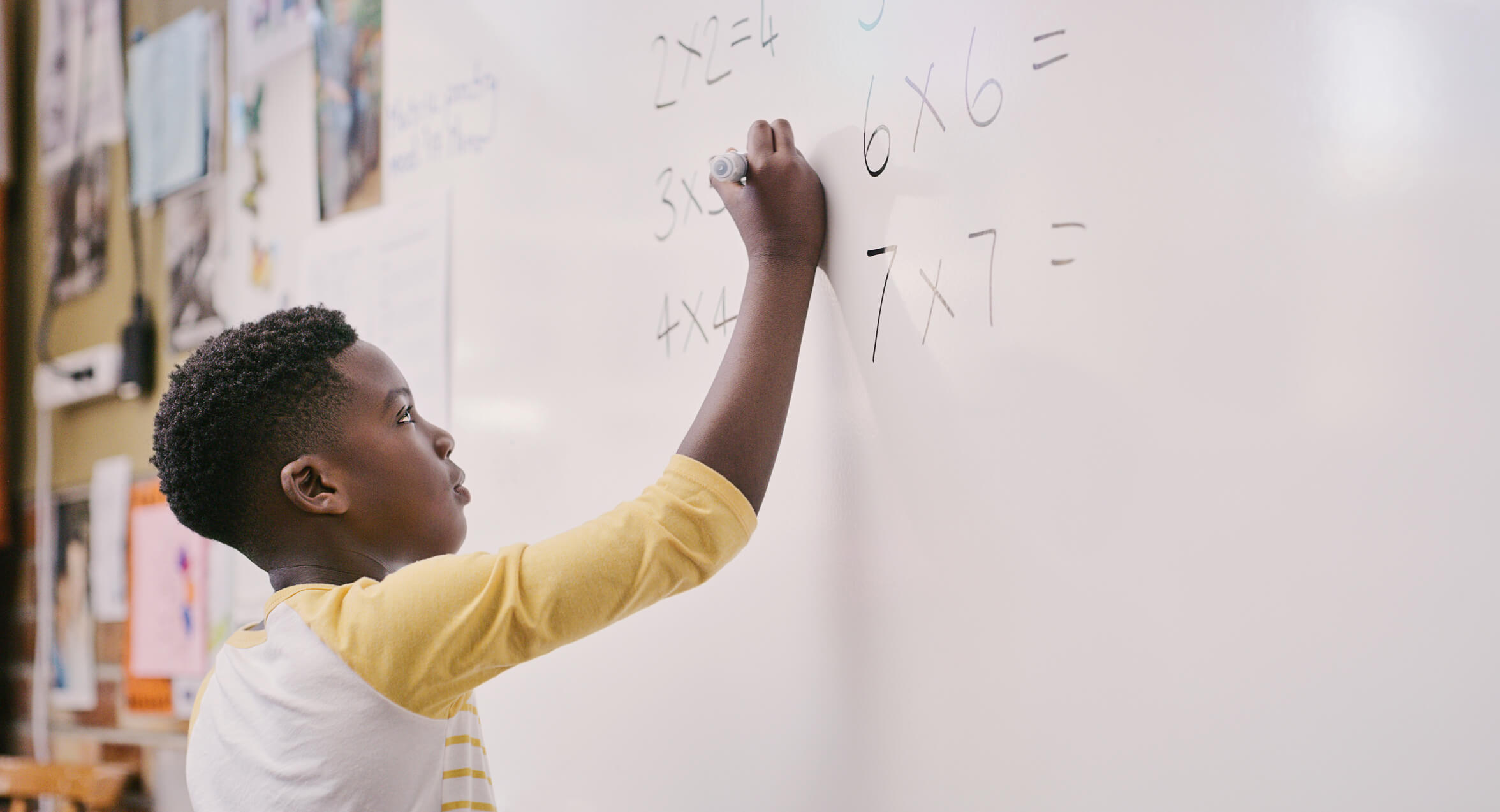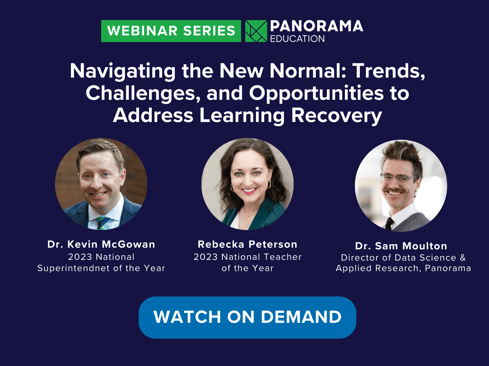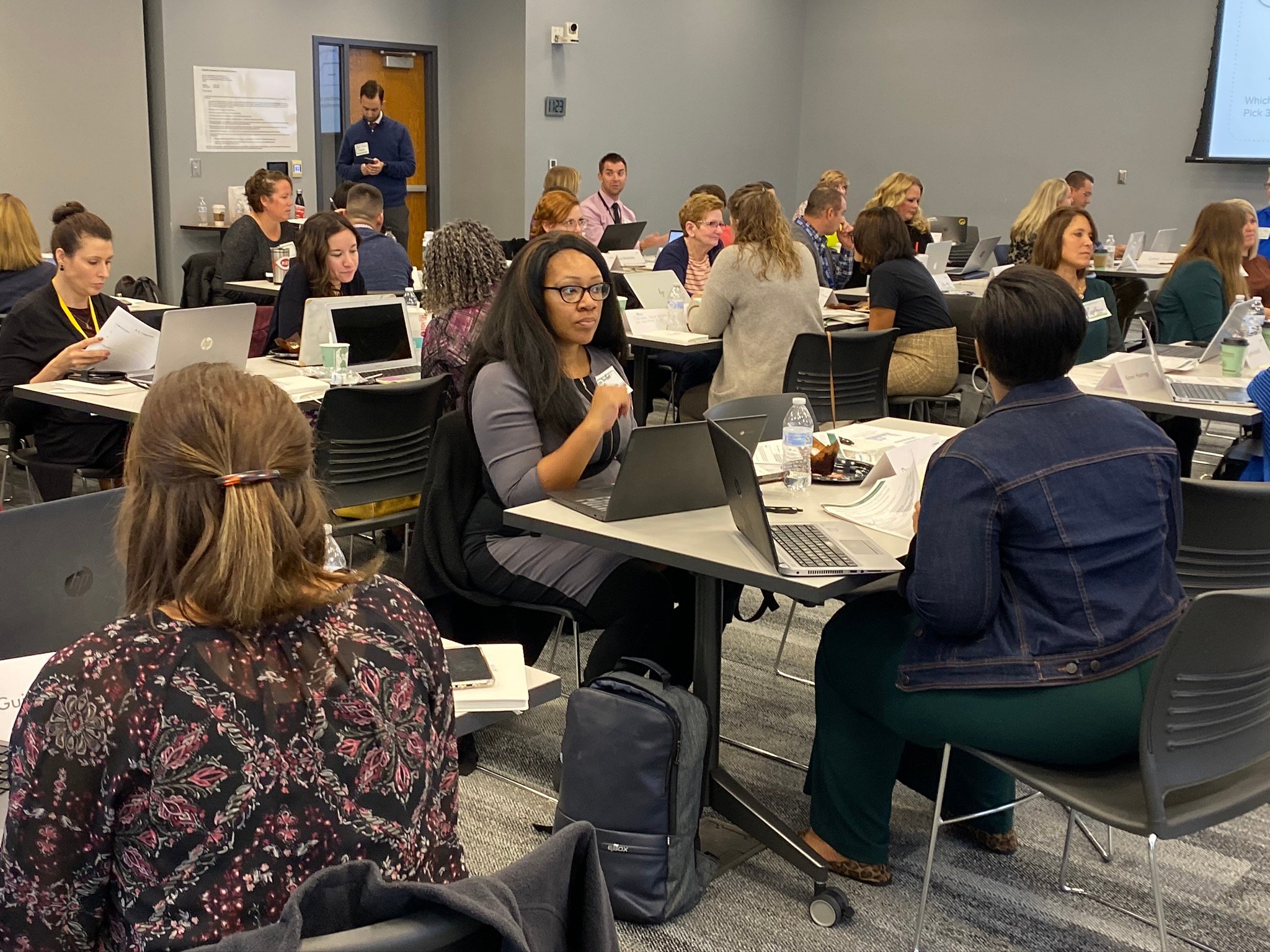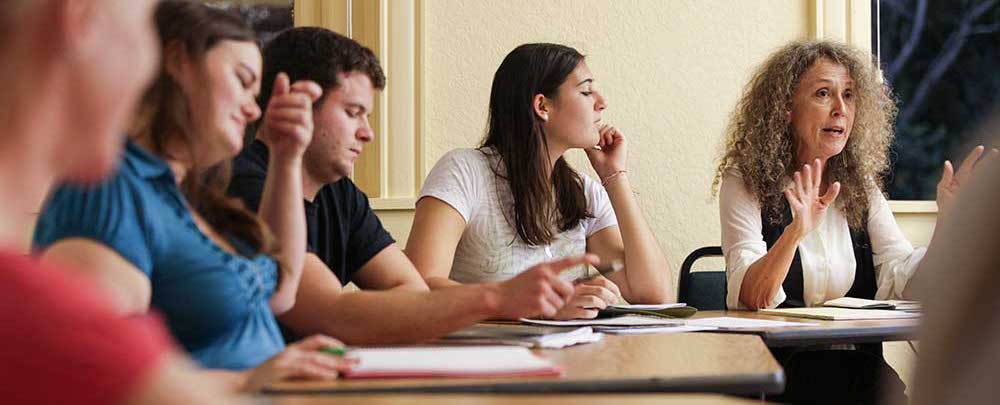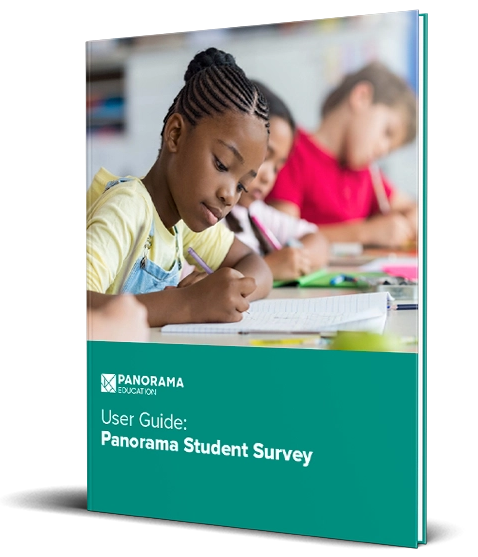High school math teacher Rebecka Peterson sits at her desk, writing an email home to parents. If you were to peer over her shoulder, you wouldn’t see notes on missing homework or low math scores. Instead, you’d see a moment of joy: today, Peterson is writing to share how 10th grader, Juan, explained a tricky math concept to a fellow student.
Peterson wants Juan’s parents to know she sees his empathy and passion for helping others. She also sends the email to the assistant principal, so he can read about a good thing happening in the school.
For Peterson, taking the time to reach out to families with positive stories matters because she wants to build trust. “I think every day we have the choice to build trust or break it, and I hope we choose to build it,” says Peterson. And building trust is more important than ever in the wake of the damaging effects of the pandemic on learning.
The initial year of the Covid-19 pandemic brought significant disruptions to typical student experience. Self-efficacy dropped across all grade levels, meaning students lost confidence that they could succeed. Self-management declined, particularly around students’ ability to work independently. Panorama’s Data Science and Applied Research team uncovered these trends through a first-of-its-kind study of effects of the pandemic on student success.
Educators everywhere are wrestling with these types of effects of the pandemic and the need for learning recovery. To get more insights into what practices support learning recovery we talked with Dr. Kevin McGowan, 2023 National Superintendent of the Year, and Rebecka Peterson, 2023 National Teacher of the Year.
These national education leaders focused on three supports for learning recovery:
- Nurture strong relationships for healthy schools
- Build systems and policies to support learning recovery
- Make space for innovation in teaching
Gather feedback from students about their classroom experience with the Panorama Student Survey
1. Nurture Strong Relationships for Healthy Schools
Strong teacher-student relationships support students. Both Peterson and Dr. McGowan agreed it’s important for educators to nurture relationships with students. But the importance of relationships as the building blocks of a healthy school culture doesn’t stop there.
Students are not the only ones changed by the pandemic and in need of supportive relationships. Teachers feel tired and overwhelmed. They also need social and emotional support so they can provide the best for students.
"Teachers are the first responders but we aren't trained counselors or therapists. How do we create systems that more robustly support the whole student? We need systems that help teachers to know how and when to utilize those tools," said Peterson.
Meaningful relationships extend beyond the building. Fostering trust and strong relationships with family is also important. Teachers can take small regular steps to build trust with families. This can look like reaching out to them and asking what they want to know, or taking time to share with families the positive things that have happened with a student.
|
Pro tip from Rebecka Peterson, 2023 National Teacher of the Year: "I send out a parent and guardian survey at the beginning of the school year. At the top, there's a three minute video so they can put a name with the face and a voice, especially for those families who can't come to the open house. I ask one question because I want to honor their time, and all it says is: “Fill in the blank. I am proud of my child because _____.” Optionally, there's a second question: “Is there anything else you want me to know?” I take my time to read through these as I'm learning my students in those first several weeks. Those small things build trust with our families." |
2. Build Systems and Policies to Support Learning Recovery
How do we ensure the inclusion of all students in learning recovery? School districts can benefit from taking a systemic, data-based, whole child approach to address learning recovery. Regular team meetings can look at individual students' needs and tailor targeted solutions to those particular needs.
"We need to be addressing so much with regard to kids relative to "learning loss," thinking about very specific targeted interventions, and using data tools to support our work in that area. We also need to be thinking about the whole child and the impact that period of time had," said Dr. McGowan.
"Equity is about being transparent, direct, and vulnerable in our use of data. It requires time to build trust and capital with people."
Dr. Kevin McGowan, 2023 National Superintendent of the Year
Ensuring equitable outcomes for all students requires district-wide systems. "Equity is about being transparent, direct, and vulnerable in our use of data. It requires time to build trust and capital with people. Build the relationship first and then build teams that can look honestly and openly at data," said Dr. McGowan.
Pro tip: Panorama Student Success unifies student data in powerful dashboards to help you make data-based learning recovery plans.
Watch: Addressing Learning Recovery: Getting Students Back on Track with Effective MTSS
3. Make Space for Innovation In Teaching
The old approaches to teaching may not always suit the current times. Consider how making space for innovation in teaching practice could promote learning recovery.
One way to approach teaching post-pandemic is to take an asset-based approach. Peterson suggests looking for the strengths in the ways the pandemic has changed students' attitudes and capacities.
"I've seen that students have had a decline in their ability to work independently. So can we make them excellent collaborators? Can we harness that behavior? Can we build classroom community?" said Peterson. Experimenting with flipped classrooms is a powerful way to harness the newly identified strength to support learning.
"I've seen that students have had a decline in their ability to work independently. So can we make them excellent collaborators? Can we harness that behavior? Can we build classroom community?"
Rebecka Peterson, 2023 National Teacher of the Year
It’s hard to overstate the impact teachers can have on students. Dr. McGowan reminds teachers to anchor in the impact on students. "I would encourage people to go back to one child's situation where they made a significant impact in a child's life and anchor themselves in that," said Dr. McGowan.
Pro tip: Panorama Student Success unifies student data in powerful dashboards to help you make data-based learning recovery plans.
Key takeaways for district leaders working on learning recovery
Everyone has a role to play in learning recovery, from students, to families, to teachers, to superintendents. District leaders can lead the way by:
- Providing support for teachers to innovate and build relationships with each student,
- Nurturing strong family and community engagement,
- And developing systemic data-based processes for tailoring supports.
Dr. McGowan calls for creating the environments where all teachers and students can thrive. "Let's move back to building relationships with people, being thoughtful and strategic in our thinking. And, depending on the people like Rebecca who have thoughtful solutions and would like nothing more than every child to be successful," said Dr. McGowan.
Resources to support learning recovery
- Interventions & Progress Monitoring Toolkit
- 15 Survey Questions to Ask About Learning Recovery in Your District
- How the NAEP Report Shows the Need for Whole Child Support [+ Free Resources]
- Panorama Student Survey
- Learning Recovery Resource Pack
- Focus on Learning Recovery: A 3-Part On-Demand Virtual Series
Download Panorama's Free Student Survey
